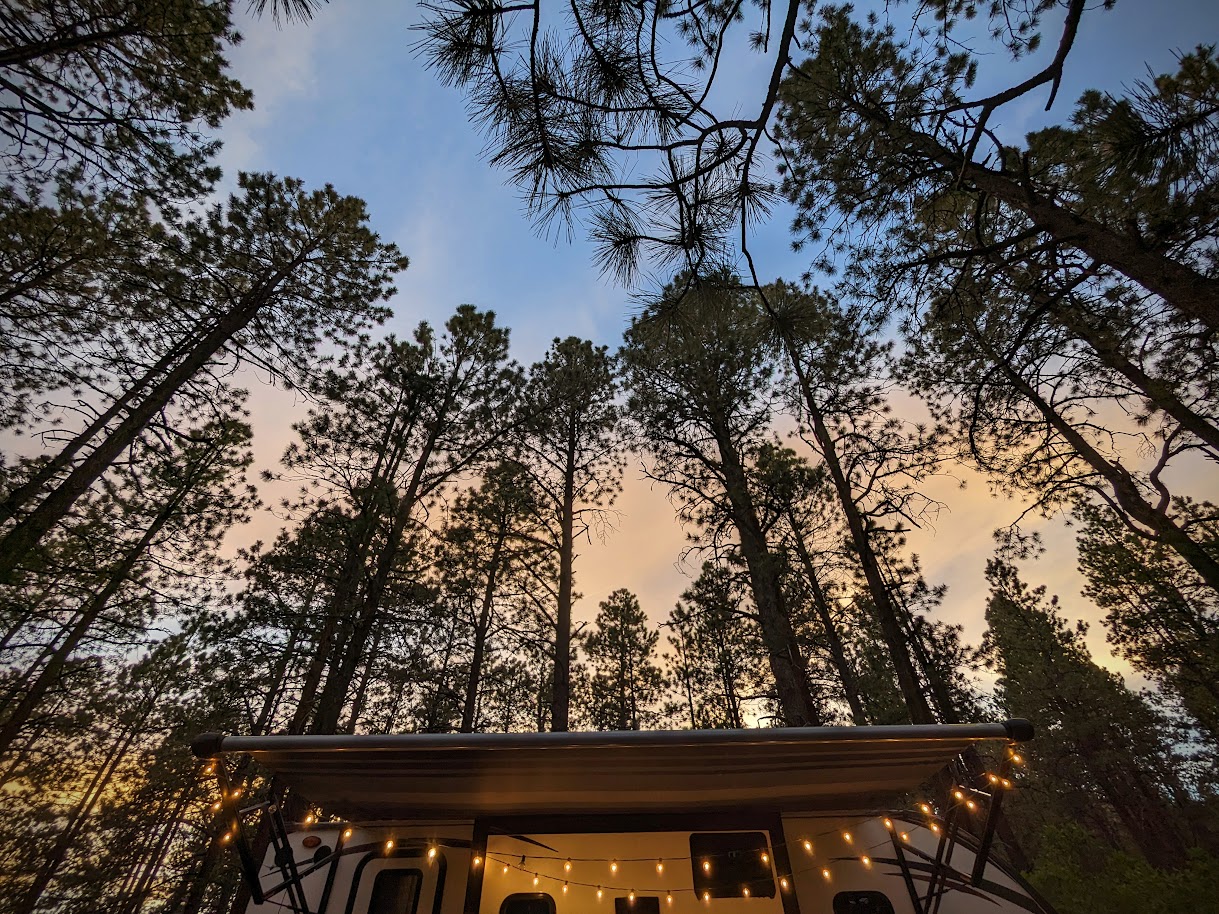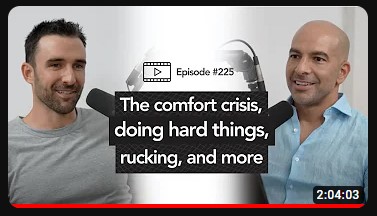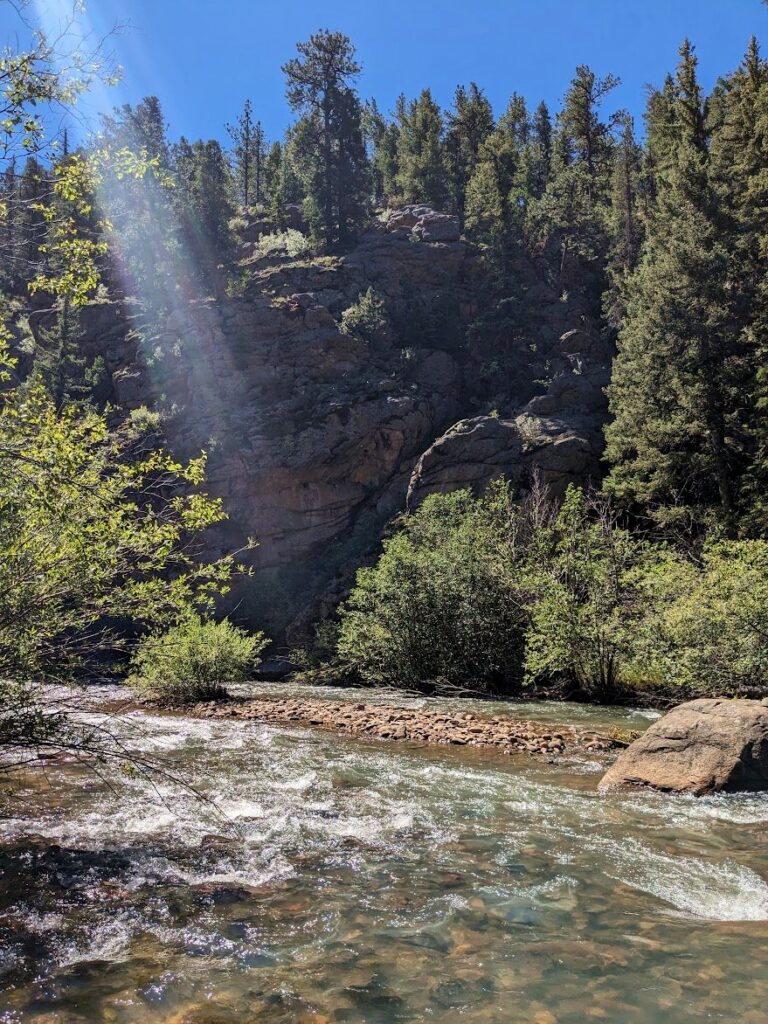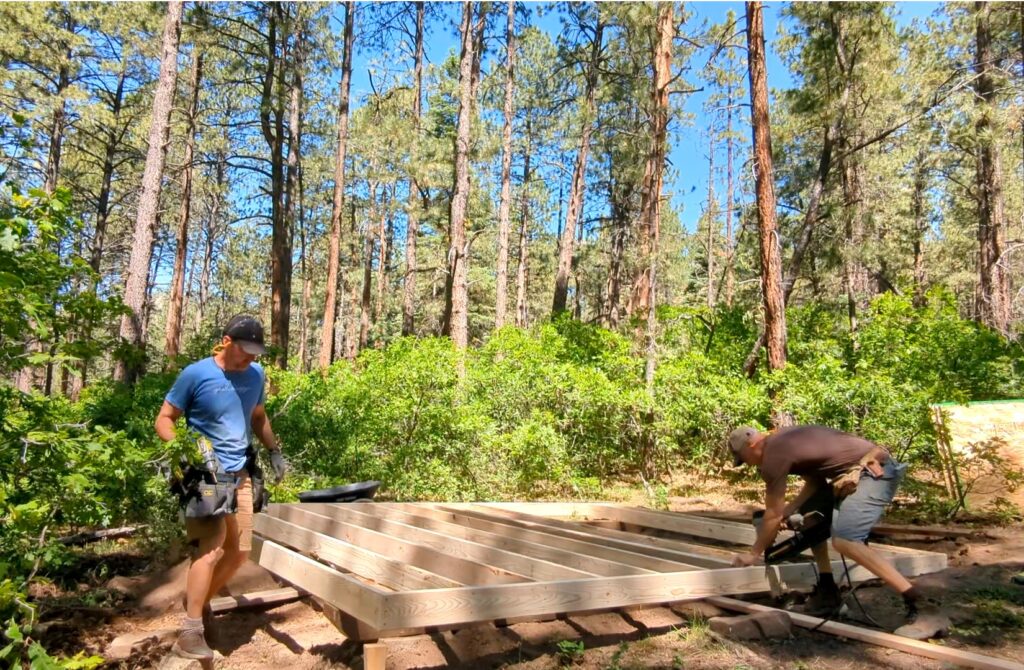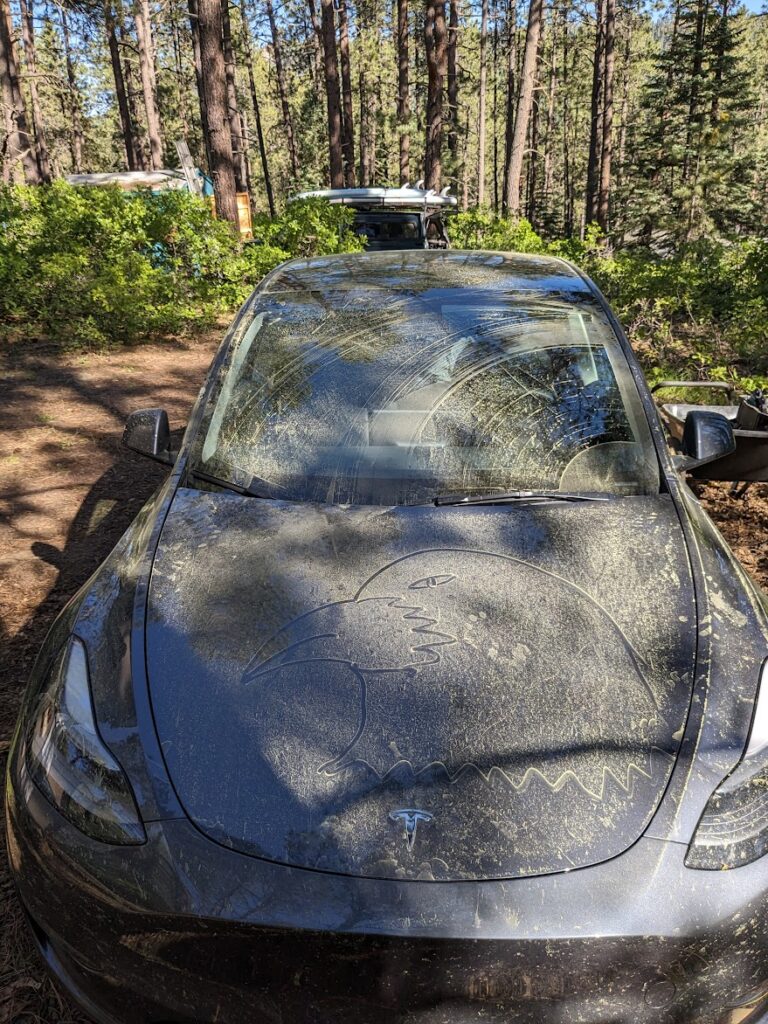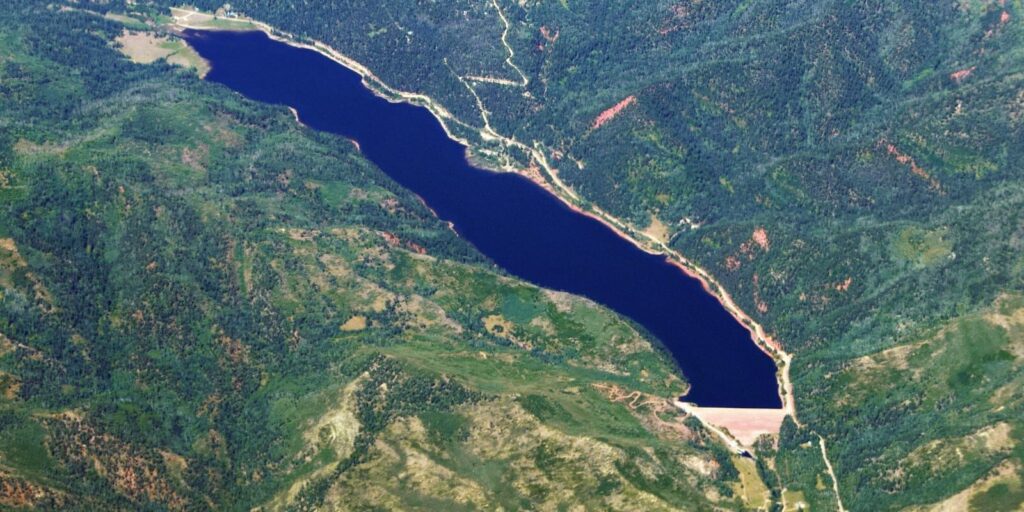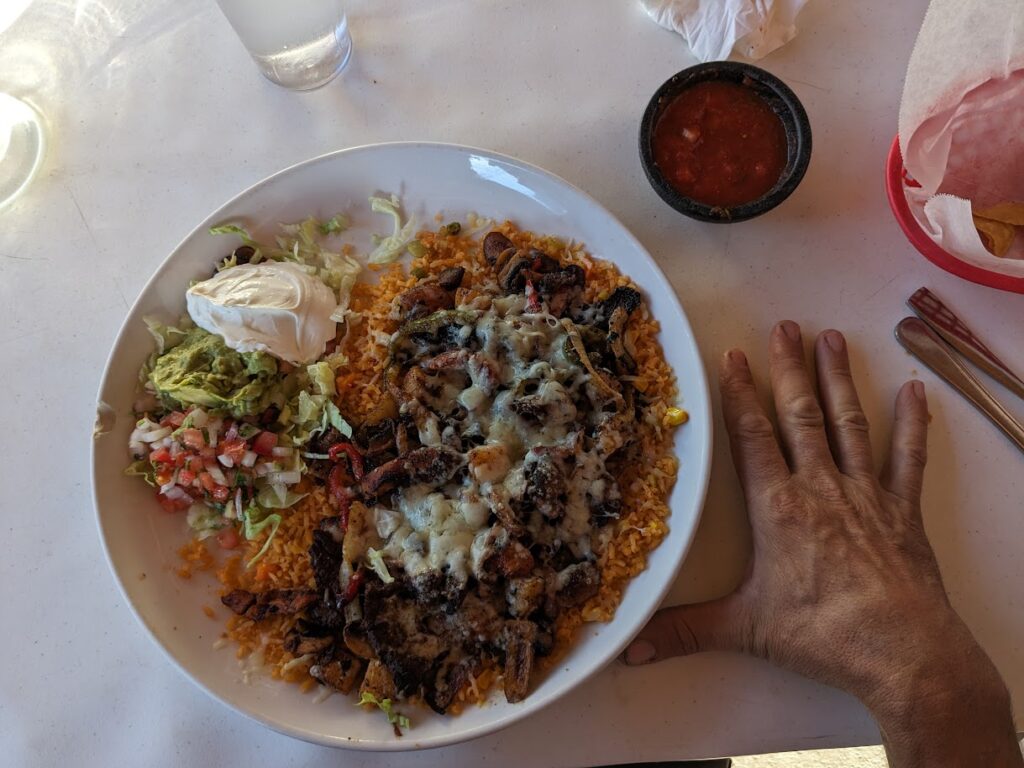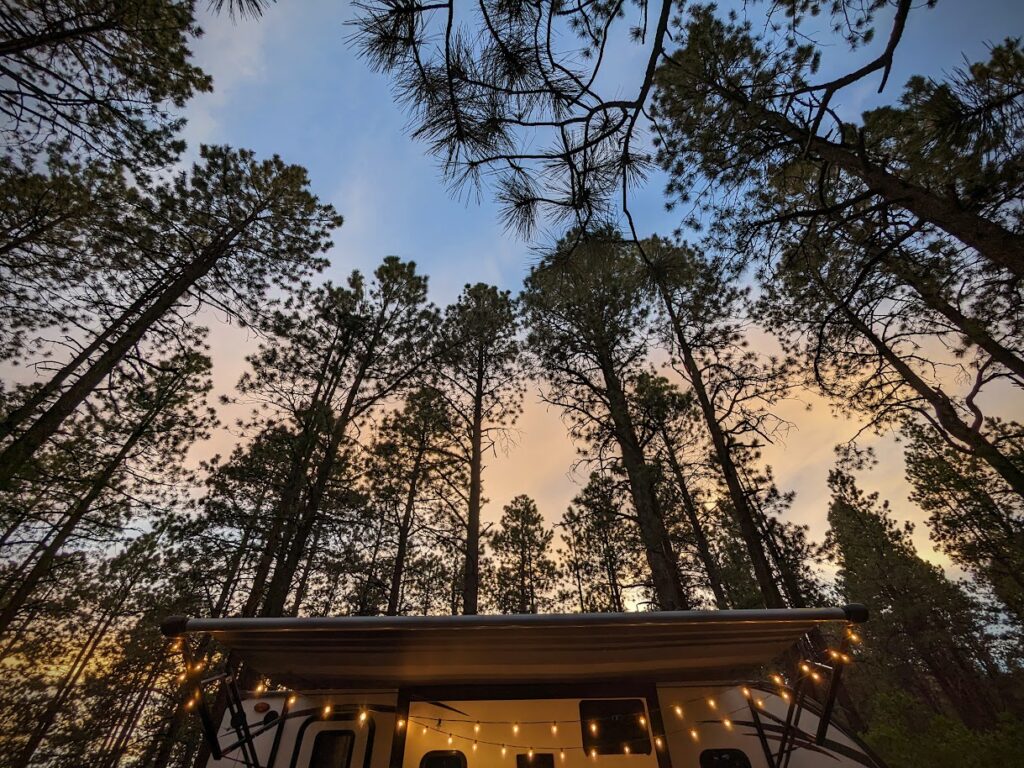
As with many things in life these days, it all started with an episode of the Peter Attia podcast.
In this edition, our nation’s most Badass Doctor was interviewing a guest I initially dismissed as not overly applicable to my own lifestyle. A young,excessively handsome dude who happened to be a writer with a new book out. But the headline of the episode was just intriguing enough to get me to click.
“The Comfort Crisis”
Wow, what an amazing turn of phrase, and what a concise summary of the core of this whole Mustachianism thing I’ve been trying to express for the past dozen years.
While the news headlines cry constantly about our nationwide personal debt crisis or health crisis or any other number of things that suggest that life is so hard these days, I have always seen the opposite: on average, we Americans seem to have a problem of ridiculous overindulgence and easiness in our lives, and our main problem is not recognizing it, and the damage it does to us.
So of course I had to click, and then listen to the whole two hour episode, and then buy the book, and then spend the past month reading and digesting it in small, meaningful chunks like the modern-day chunk of scripture-like wisdom that it is. And wow, am I glad I did so.
The author is Michael Easter, a former writer for Men’s Health magazine was also once catastrophically addicted to alcohol – and descended from a long family line of ancestors with the same affliction.
He was lucky to catch himself from that fall in time to save his own life, and that story alone makes the book worth reading as someone who has stood by helplessly as loved ones battled with addiction. But I think his history with overindulgence in the hollow comforts of alcohol also gives him an edge on writing about the battle between comfort and hardship on the bigger stage of life in general.
So what is The Comfort Crisis about, and how can it make all of our lives better?
The best part about this book is just what a damned good writer this Easter guy is. Like many of the most fun popular science books*, it follows a split narrative which jumps back and forth to interweave the story of an insanely difficult caribou hunting trip he joined in a remote pocket of Alaska, with the appropriate bits of science, psychology and cultural commentary that help us explain and learn from each chapter of the epic shit he had just endured. This allows us to process and apply the lessons in our own lives.
For example, have you ever wondered why the type of bored, rich suburbanites who populate the board of your local Homeowner Association and whine about unacceptably tall weeds or unauthorized skateboarding on Nextdoor are so insufferable?
Why can’t they do something better with their time?
It turns out that there’s a scientific explanation for these unfortunate people, along with most of our other problems:
The tendency of humans to always scan our environment for problems, regardless of how safe and perfect that environment is.
The book cited a study in which researchers told people to look for danger, in an environment which gradually became safer and safer:
“When they ran out of stuff to find they would start looking for a wider range of stuff, even if this was not conscious or intentional, because their job was to look for threats.”
“With that in mind, Levari recently conducted a series of studies to find out if the human brain searches for problems even when problems become infrequent or don’t exist.“
“As we experience fewer problems, we don’t become more satisfied. We just lower our threshold for what we consider a problem.“
In other words, even when our lives are virtually problem free, instead of appreciating our good fortune we just start making up shit that we can complain about instead.
And then our politicians cock their greasy, finely-tuned ears in our direction and make up policies to appease our mostly-insubstantial concerns. And they invent their own trivial “wedge” issues to get us to all bicker about our different cultures and religions, suddenly caring about things that would not have even been problems if nobody told us they were.
And there’s America’s weakness in a nutshell, and meanwhile our strength comes entirely from the times we choose not to waste our time stooping to this level.
Meanwhile, the opposite effect holds true: people who survive in rougher environments than us end up more resilient and less prone to complaining.
In a series of recent interviews, Ukrainian people living in the war zones of their occupied country were asked “is it safe to live where you live?” and a strangely high percentage still said “Yes” – not all that different from the responses of US residents when asked the same question about their own cities.
This adaptation principle also explains why some first generation immigrants tend to build businesses and wealth while their own offspring in second and third generations are more likely to become complacent and spend it down. As an immigrant myself, I can see why this is: conditions were just slightly more harsh and less comfortable and wealthy where I grew up, so I adapted to those conditions as “normal” which made the United States seem posh and easy by comparison. Which made it easier to spend less money and accumulate more.
Tree Therapy
The trap of pointless worry is just one of the many revelations of The Comfort Crisis. It also gives insightful explanations for why spending time in Nature boosts our mental and physical health, while cubicles and car driving grind us down.
There’s something in our biological wiring that responds instantly and powerfully to everything natural, in ways that you can’t get anywhere else.
Even placing a single plant into a hospital room will measurably improve the recovery of almost all patients from almost all ailments. So can you imagine the power of the medicine you are inhaling if you step into a real, living forest? And what if you spent several hours there, or even several days?
Later, we get lessons on our human adaptation towards the ratio of effort to reward:
| It’s proven the harder you work for something, the happier you’ll be about it,” |
And our bizarre natural aversion to physical exertion:
| A figure that shows just how predisposed humans are to default to comfort:
2 (two). That’s the percent of people who take the stairs when they also have the option to take an escalator. |
Which is remarkable, given the absolutely insane cost this tendency imposes upon us.
Moving your body, even a bit, has enormous benefits – again to almost all people towards reducing the probability and severity of almost all diseases. So can you imagine the benefit of moving your body for several hours per day in a natural environment, and including heavy load bearing and bits of extreme exertion?
These things are not speculative pieces of alternative medicine. They are known, easily and reproducibly tested, and proven to be the most effective things we can possibly do with our time.
So why, the actual fuck, are people still sitting inside, watching Netflix, driving to work, and then driving to the doctor’s office to get deeper and deeper analysis of a neverending series of exotic and mysterious and unsolvable problems with their physical and mental health?
We should at least start with the stuff we know is essential – maximum outdoor time every day, heavy exertion including with weights, minimal time spent sitting and driving, and minimum junk food, sugar, and alcohol. You definitely don’t have to be perfect, but just understand that these are the big levers for physical and mental health.
Only then, once you reach these minimum basic things for human survival, should you expect that more exotic and niche medicines and treatments are the only course of action.
By all means, follow your doctor’s orders and don’t just dump all of your medications down the sink because of this MMM rant. But at the same time, realize that the stuff that is hard and uncomfortable is very likely to be the stuff that improves your life the most.
It’s all the stuff that Mr. Money Mustache has been telling you since 2012, but with more detail and less distraction. This book is a concentrated packet of advice for solid living.
Real Life Inspiration from the Good Book
In a happy coincidence, I happened to be in the middle of some hard stuff** of my own as I worked my way through The Comfort Crisis and I found the perspective quite useful and transformative to apply hot off the press.
Normally somewhat of a homebody, I had embarked on a solo journey for some Carpentourism deep in the mountains of Southwestern Colorado. I had my whole life shrunk down into the new Model Y including food, bed, and the necessary tools and materials to tackle a pretty long laundry list of tasks on two different construction projects (fixing up a mini-resort property in Salida, and starting construction on a small cabin in Durango)
The trip immediately took a turn towards the dramatic as I climbed into the mountains and drove straight into the most torrential rainstorm I have ever seen, then accidentally broke a traffic law in a remote mountain town right in front of both of the local police officers ($115 fine and two points off my license), then five minutes after that had a small pebble hit my brand-new windshield which instantly spread into a crack that spans the whole thing, all before finally limping into Salida to unpack and get started on the work.
“Big deal”, I can already hear you saying, “Retired man experiences two minor incidents while taking a vacation in his luxury car.”
And you’re right, and that is exactly my point.
My life is so stable and comfortable that even these two miniature challenges threw me off balance, and I arrived in a slightly bummed and stressed-out state. But I still knew that in the bigger picture, they are good for me if I accept them as the lessons they are rather than choosing to continue to worry about them.
As the trip went on, more things happened, almost as if The Comfort Crisis book were trying to prove a point. I drove three hours deeper into the mountains and up the steep dirt road to arrive at my second friend’s piece of land – a plot of forest in the mountains just outside of Durango.
My work days in that high desert environment in the peak of summer were hot and physically demanding. It was hard to keep my tools, and my food supply in the cooler, and myself protected from the scorching sun (and a strange neverending blizzard of tree pollen) while still getting the job done. There was no indoor plumbing and we had to be very careful with our limited water supply. And then at the end of each day I had to reshuffle everything and set my car back up as a bedroom and crawl in for the night. Alone and far from home.
But instead of feeling depressed as I experienced this constant hardship, the opposite thing was happening: I felt more alive and more badass with each passing day. I got better at being a feral forest man.
One day, my co-builder and I decided to take the afternoon off and head to the wild, remote Lemon Reservoir for some paddleboarding. We didn’t bring our phones or any other conveniences or amenities – just two boards and the minimal clothing required for swimming. And we headed out into a stiff headwind and little whitecap waves, laughing at the freedom of the experience.
It was hard, and slightly scary, as we got further and further from the shore. Progress was slow even with serious paddling, and we didn’t have any particular plan beyond the spirit of “let’s GO!”
But again Michael Easter was there whispering in my ear, saying,
“Is this difficult, Mustache? GOOOOoood! Then you’d better keep going!”
So we did. And we got way out into that lake, to a point where the water was shielded from the wind by the mountains on the other side. And it was awesome.
We cruised over to the shore to explore a particularly scenic meadow, coated with the softest green mossy grass and exuberantly colored wildflowers, and set at an impossibly steep angle. And damn I wished that I could have taken pictures, but in a strange way this forced me to burn that spot more thoroughly into my memories using my own senses instead.
Then we headed back out into the center of the lake, set down the paddles, and just laid down on our boards to let the wind and the waves take us back towards the far end of the lake where we had started. And what a strange, serene feeling it was, floating on just a tube of air over two hundred feet of cold blue water, feeling like a jungle man with no cares and no plans and no material possessions. It could have been scary, but instead it was one of the best and most relaxed moments of my life.
Eventually, this week of forest living and exertion had to come to an end so I could get back to my own town to be a Dad again. But it ended with a final reminder of the principles of the Comfort Crisis – after so many days relatively extreme work and a relatively sparse food supply, I had grown used to a healthy background hunger. Which is yet another thing that we are meant to experience as humans – being satisfied and free from hunger all the time is neither normal nor healthy.
But when my hosts took me out on the town for a final night thank you dinner at the Mexican restaurant, the immense Burrito platter I consumed turned out to be the most delicious meal of my life.
Purposeful Hardship vs. Purposeful Spending
There has been a lot of talk directed at the FIRE community recently about how bad we are at spending our money, and how we all need to loosen up. And there’s a small amount of truth to it, as my local friends Carl and Mindy recently admitted during a grilling on the Ramit Sethi podcast.
But we also need to keep this whole idea of excessive comfort in mind, and the damage it does to the natural human condition.
It’s great to spend money on adventures and improving yourself, being generous to others, and making the world a better place.
But it’s also way too easy to fool yourself into thinking you “want” things that just make your life easier and easier.
So your job is to catch yourself before this happens, and learn to keep things challenging, even as you upgrade the rest of your life experience.
In other words: buy yourself better tools, not softer chairs.
—-
* Another great book that follows this style is Wired for Love by neruroscientist Stephanie Cacioppo – highly recommended for reading in parallel with a lover, whether new or old.
** not actually hard by reasonable human standards, but it seemed hard by my comfort addicted first world standards

